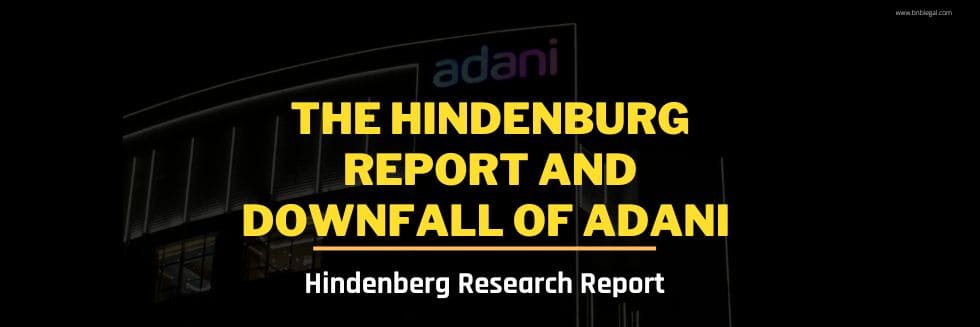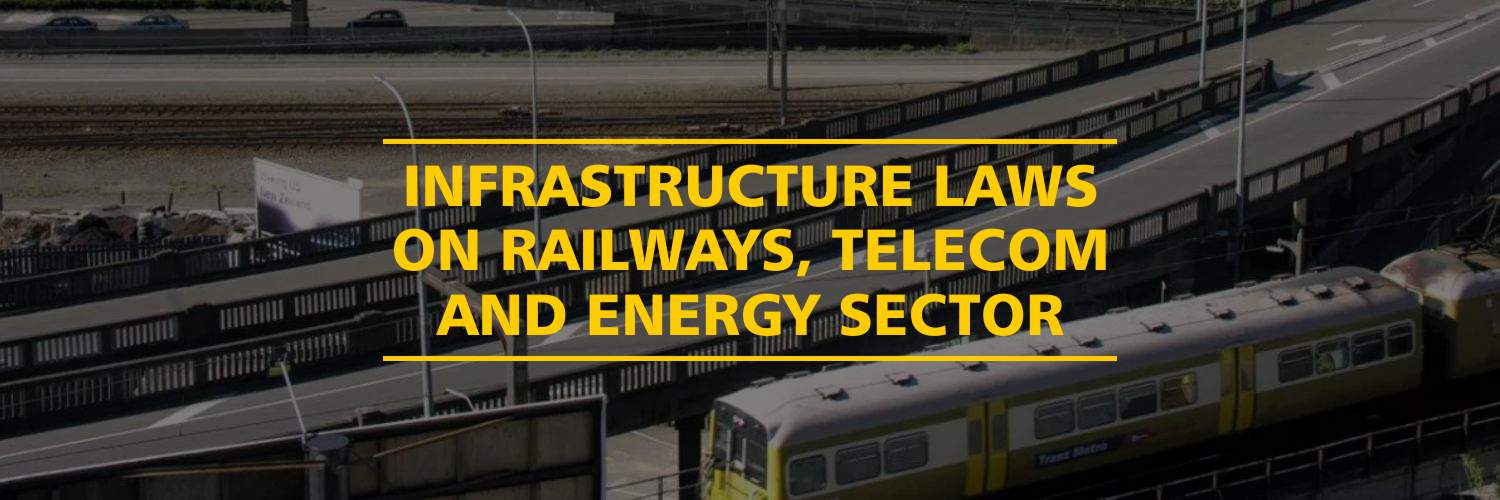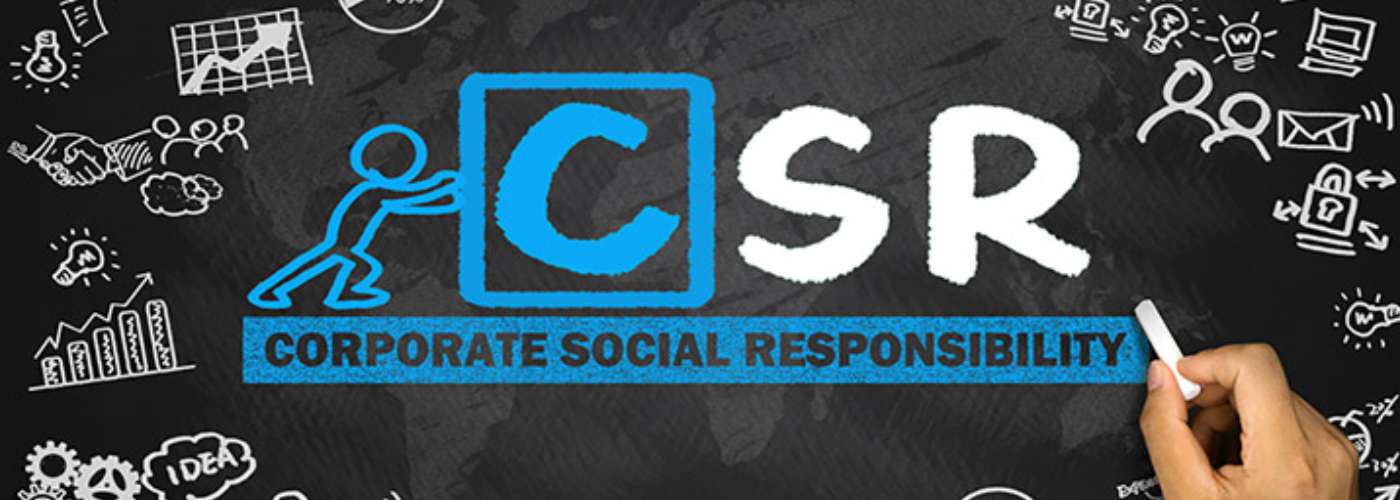Hindenburg Research LLC is a U.S. investment research firm known for publishing investigative reports that raise concerns about the practices, operations, or financials of specific companies. The company was founded in 2017 by Nathan Anderson, a student of international business management at the University of Connecticut. Their reports often focus on companies that are publicly traded or planning to go public. Hindenburg Research gained prominence for its reports on various companies, including Nikola Corporation and Clover Health, among others.
In January 2023, Hindenburg Research published research on the Adani Group that provided a scathing evaluation of the Indian conglomerate’s operational and financial procedures. The article triggered an uproar over one of India’s leading corporations’ business practices and raised significant concerns about the ethics and legality of Adani Group’s operations.
The Adani Group’s founder and chairman, Gautam Adani, had built a net worth of over $120 billion. Over the last three years, he added over $100 billion to that amount, mostly due to stock price appreciation in the group’s seven key listed companies, which increased by an average of 819%. Adani Group is a large multinational conglomerate operating in various industries such as ports, logistics, agribusiness, energy, real estate, and defence. With a significant presence in the Indian business landscape, the company generated revenues exceeding $218 billion so far till 2023. However, according to the Hindenburg report, there are allegations that the company employed unethical accounting methods to inflate its wealth and downplay its liabilities.
What Did the Hindenburg Report Allege?
The Hindenburg report accuses Adani Group of using aggressive and unconventional accounting techniques to fraudulently boost its profits and downplay its debt. The report asserts that the company has recorded substantial revenue from its subsidiaries and joint ventures, but these figures are not properly consolidated in its financial statements. As a result, the report suggests that the company’s financial condition and profitability may be misrepresented, providing a misleading impression. Adani Group has further been involved in insider trading and tax evasion.
The Adani Group, which consists of 7 notable publicly listed firms and a total of nine entities, has a market value of about INR 17.8 trillion. The company also includes an intricate web of private businesses and family trusts connected to the Adani family. Through their ownership in the company, Gautam Adani and his family have amassed considerable paper wealth totalling more than $120 billion. A significant portion of this growth took place in the past three years.
The 7 key companies listed under Adani Group have seen their stock prices mysteriously surge over the past 3 years – with most increasing multifold – ranking them individually among the largest companies in India. Both Adani Enterprises and Adani Ports feature in India’s Nifty 50 index and 6 of the companies are included in the MSCI India Index.
As per the report, 4 out of 7 entities’ growth doubled in the last one year without any new innovation or big contracts these all are just on the basis of commitments.
Overvalued Shares:
Any company’s actual value is calculated through its Price Earnings (PE) value. Interestingly, Adani Green Energy has been overvalued by 815 times as compared to its original PE i.e. 24 times, if this market value it is supposed to come down by 97.10%. if we refer to the report, there was around 85% overvalued share price for the listed companies.
Round-Tripping of Money Through Offshore and Shell Entities:
There are 38 Mauritius shell companies that Vinod Adani or his close friends are in charge of. The named organisations that Vinod Adani also covertly controls in Singapore, Cyprus, the UAE, and several Caribbean islands. Many of the companies associated with Vinod Adani don’t show any obvious indicators of activity, such as stated workers, separate addresses or phone numbers, or a significant online presence. Despite this, they have collectively moved billions of dollars in both publicly listed and privately owned Adani companies in India, without disclosing the related party nature of the transaction as was required as per SEBI regulations.
Listed Companies on the Brink of India’s Delisting Threshold:
Four of Adani Group’s listed companies, namely Adani Enterprises, Adani Transmission, Adani Power, and Adani Total Gas, are approaching India’s delisting threshold due to a substantial proportion of their shares being held by insiders or promoters. These companies have disclosed insider ownership exceeding 72%. Additionally, Adani Wilmar, a recent addition to the group, currently has insider ownership of 87.94% and is required to reduce it to 75% by early 2025 in order to comply with the regulatory requirements. If in investigation it has been found that the family promoter have more than 75% of the shareholding then the company will get delisted.
Additionally, for many of the Adani listed companies, a large portion of their “public” shareholders are funds based in the opaque jurisdiction of Mauritius. It is significant that the funds mentioned in this section which we believe should be categorised as “promoter” (insider) entities hold enough shares of the Adani listed businesses to push four of them well over the 75% threshold and hence cause delisting.
Red Flags Raised by the Hindenburg Report
Financial Red Flag:
Frequent Change in CFO Roles: Gautam Adani and his family have continued to play a significant role in Adani Enterprises and other publicly listed Adani Group companies. However, they have had trouble keeping Chief Financial Officers (CFOs), which has resulted in a high rate of turnover in the position of top accounting executive role with 5 CFOs in just 8 years. This raises concerns and key red flag about potential accounting and internal financial control issues within the organization.
Auditor Red Flag:
A Tiny Audit Firm: The Independent Auditor Firm is a very small firm for Adani Enterprises and Adani Total Gas, reported to have only 4 Partners and 11 total Employees. The Audit Partners are 28 years old and approved the financial statements for the companies, resulting in a total market valuation of $100 billion. They were 23 and 24 years old when they first approved financials.
Given the complexities of Adani Total Gas and, in particular, Adani Enterprises, with 156 subsidiaries and a plethora of affiliates and joint ventures, one would expect a huge, highly competent audit team to be monitoring its corporate structure. However, Adani Group chose a small audit company called Shah Dhandharia to oversee the audits of these two public firms. During the Hindenburg investigate, Shah Dhandharia’s website went offline, and it currently appears to have no website. According to archived versions of the website as of February 2020, the firm had only four audit partners and seven support workers. Three of the four partners were in their twenties, which is hardly the degree of expertise or seniority required to thoroughly investigate one of the world’s wealthiest and most influential businessmen.
Related Party Transactions (RPTs):
The key 7 listed entities of Adani group collectively engaged in a staggering total of 6,025 separate related-party transactions in fiscal year 2022 alone, as per BSE disclosures. Many Adani private entities are structured through offshore private trusts, with similarly complicated structures. Some of the RPTs that were observed in the report are as follows:
Transaction 1
Krunal Trade & Investment, One Of Vinod Adani’s Mauritius Entities, Lent INR 11.71 Billion (U.S. ~$253 Million At The Time) To An Adani Private Entity, Without Disclosures as required by the SEBI guidelines. Krunal has no physical address or phone number listed other than its corporate registrar. No employees were found on LinkedIn nor any web mention of the entity’s operations except its own vague website.
The Adani Private Entity further lend INR 9.84 Billion (U.S. ~$138 Million At More Recent Substantially Lower Exchange Rates) To Adani Enterprises, An Adani Listed Company.
Transaction 2
DMCC a UAE-based entity that engages in “Investment in Commercial Enterprises. Another suspicious company which loaned INR ~79 billion (U.S. $1 billion) to Mahan Energen, a subsidiary of Adani Power.
Emerging Market Investment DMCC lists no workers on LinkedIn, does not appear in web searches other than its corporate registration, has no clients or deals announced, and has a luxurious residential flat in the UAE as its official contact address. It appears to be nothing more than a shell company.
Transaction 3
In 2021, Adani Infra (India), an Adani private entity, loaned an aggregate U.S. $632 million to:
- Adani Enterprises in the amount of INR 17.2 billion (U.S. $231 million) and
- Adani Power Mundra in the amount of INR 29.8 billion (U.S. $401.5 million).
Adani Infra (India) records showed that during the same year, it received INR 74 billion (U.S. $996 million) from three entities namely; Rehvar Infrastructure Pvt. Ltd., Gardenia Trade and Investment, and Milestone Tradelinks. Investigation shows that none of the 3 entities appear to have business operations consistent with the ability to provide huge chunks of capital to the Adani Group. Many other such related party transactions are observed in the Hindenburg report which elaborately explains round tipping of money.
Conclusion
The Hindenburg report on Adani Group raises serious concerns about the company’s financial and operational practices, as well as its environmental impact. Although the Adani Group has denied the allegations, it is crucial for investors and regulators to treat these concerns seriously and conduct a comprehensive investigation into the claims made in the report.
The report alleges various financial irregularities, including inflated capital expenditures, opaque business structures, and discrepancies in reported profits. These allegations question the transparency and accuracy of Adani Group’s financial reporting. Additionally, the report highlights potential conflicts of interest and related-party transactions within the company, which could raise ethical concerns. It is important for investors and regulators to take these concerns seriously and conduct their own independent investigations to assess the validity of the allegations. The release of the Hindenburg report serves as a reminder of the importance of transparency and accountability in the corporate realm. It emphasizes the necessity of ensuring that companies operate ethically and sustainably.
The findings of the research advocate for implementation and enforcement of more robust regulatory frameworks, such as SEBI (LODR) regulations and the Companies Act, to assure compliance and prevent corporate fraud. Strengthening board independence, improving audits and internal control mechanisms, developing an ethical culture, supporting risk management practises, and encouraging transparency and disclosure in financial reporting is all that can be done moving forward. Companies can improve their corporate governance practises and regain stakeholder trust by adopting these measures.
This article is written and submitted by Soudamini Sharma during her course of internship at B&B Associates LLP. Soudamini is a BBA LLB 4th year student at Himachal Pradesh National Law University, Shimla.








